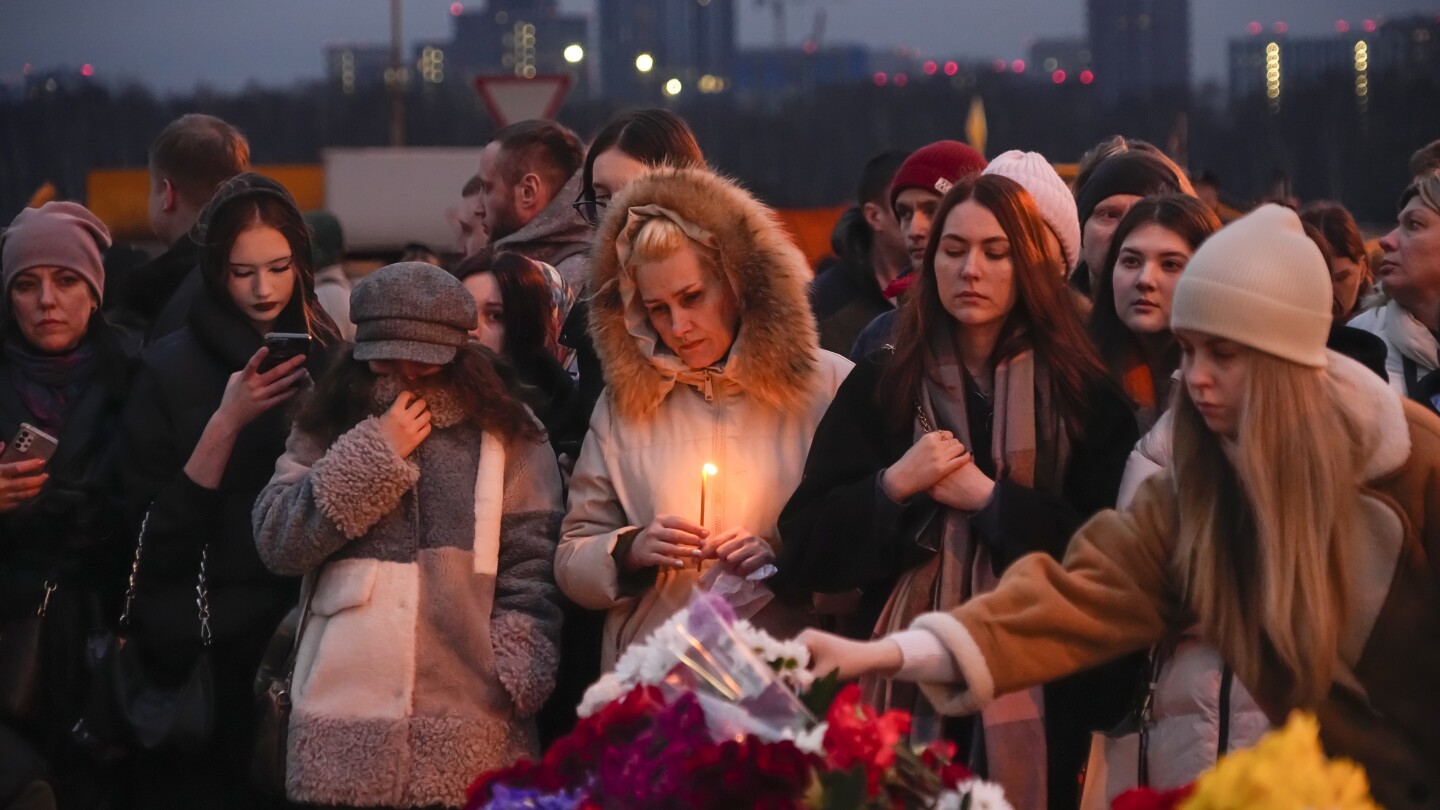WARSAW, Poland (AP) — The Islamic State group has claimed responsibility for an attack on a suburban Moscow concert hall that killed at least 133 people, the most deadly attack in Russia in years. Though the U.S. says it has evidence backing up the jihadists’ claim, that didn’t stop Moscow and Kyiv from pointing the finger at each other Saturday as the war in Ukraine rages on.
Much remains unknown about the Friday night attack, including whether it related to a security alert the U.S. Embassy in Moscow issued two weeks earlier and whether it signals a resurgence of the group in the West.
Russia continues to investigate after detaining 11 suspects but it wasn’t possible to confirm the authenticity of statements issued by Russian investigators.
Here is a look at some of what is known so far.
WHO CLAIMED RESPONSIBILITY
The Islamic State group claimed responsibility, first Friday and then again Saturday, on the social media channels that they typically use to issue statements. In their Saturday statement they said the attack had come in the “the natural framework” of the ongoing war between the extremist group and countries they accuse of fighting Islam.
IS is an offshoot of al-Qaida that took over much of Iraq and Syria in 2014. It launched a genocidal campaign against the Yazidis, a religious minority that lives in northern Iraq, as well as other groups. By 2018, it had been largely defeated on the battlefield by a U.S.-led coalition, but it continues to operate in desert hideouts in both countries. Its regional affiliates are also present in Afghanistan, West Africa and the Far East.
A Pakistani security analyst, Syed Muhammad Ali, said that if it is confirmed that the group carried out the grisly concert hall massacre, it could be seen as revenge for Russian airstrikes against IS hideouts in Syria. He noted that the group has been badly damaged by Russian airstrikes in Syria in recent years.



Who gives a shit about what the AP says or doesn’t say when you can see the warning for yourself?
https://ru.usembassy.gov/security-alert-avoid-large-gatherings-over-the-next-48-hours/
Fuck out of here with your misinformation.